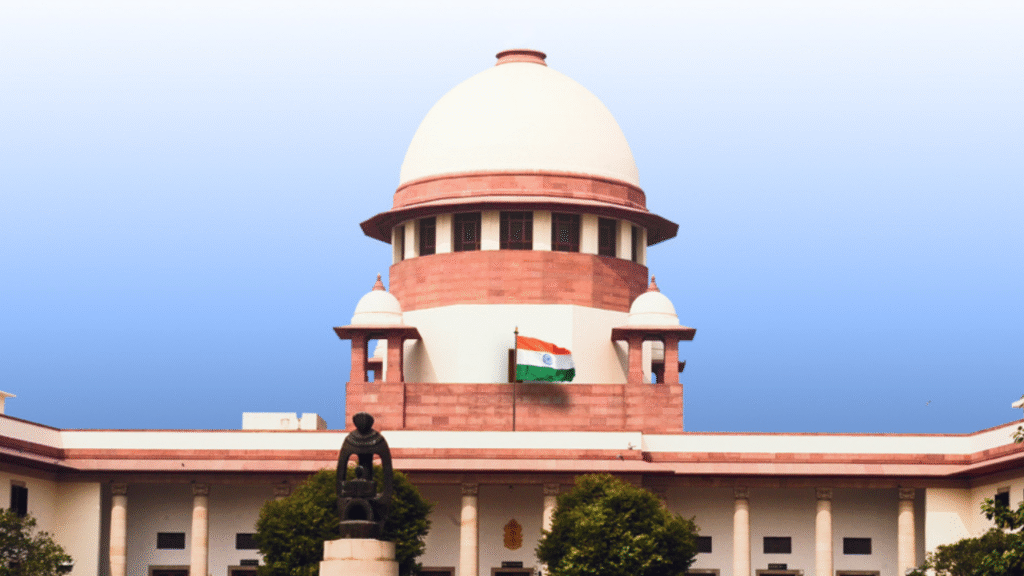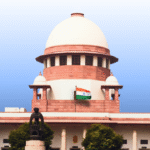Civil Procedure Code, 1908 (CPC) – Section 92 – Public Charities – Applicability to Societies Registered under the Societies Registration Act, 1860 – Concept of “Constructive Trust” – Distinguishing Public vs. Private Rights.
IN THE SUPREME COURT OF INDIA
CIVIL APPELLATE JURISDICTION
J.B. Pardiwala, J. and R. Mahadevan, J.
CIVIL APPEAL NO. 10048 OF 2025 (Arising out of S.L.P (Civil) No. 29830 of 2024)
I. Factual Background: The Appellant, Operation Asha, is a not-for-profit society founded in 2005 and registered under the Societies Registration Act, 1860, engaged in providing health services to underprivileged sections, primarily focusing on tuberculosis. Its Memorandum of Association (MoA) stipulates that all income and property shall be solely utilized for its aims and objectives, with no profits distributed to members. The Articles of Association (AoA) vest properties in the Executive Committee. Respondent No. 1, a co-founder and former President, along with Respondent No. 2, her mother and a current Board member, instituted a suit under Section 92 CPC. They alleged gross financial impropriety, misconduct, and siphoning off funds by Respondent Nos. 3 (CEO) and 4 for personal gains, impacting the society’s public charitable purpose. The reliefs sought included declaring board decisions void, reinstating Respondent No. 1, removing Respondent Nos. 3 and 4, rendition of accounts, recovery of siphoned funds, and settling a scheme for the society. The Delhi High Court granted leave to institute the suit under Section 92 CPC, a decision affirmed by its Division Bench. The Appellant challenged this, arguing that a registered society is not a “trust” or “constructive trust” under Section 92.
II. Issue for Determination: Whether a society registered under the Societies Registration Act, 1860, fulfills all the requirements stipulated under Section 92 of the CPC for the purpose of instituting a suit under the said provision.
III. Analysis and Holdings:
Object and Scope of Section 92 CPC: A Section 92 suit is a “representative suit of a special nature” aimed at protecting public rights in public trusts. The requirement of obtaining “leave of the Court” acts as a procedural safeguard against frivolous litigation and wastage of trust resources. The court, at the leave stage, does not adjudicate the merits but assesses the suit’s maintainability based on the plaint’s allegations.
Conditions for Applicability of Section 92 CPC: Three conditions must be satisfied: (a) the trust must be for public charitable or religious purposes; (b) there must be an alleged breach of trust or a need for court directions; and (c) the reliefs claimed must be among those enumerated in Section 92(1).
“Public Purpose of a Charitable Nature”: The Appellant Society, providing health services to the underprivileged for tuberculosis treatment, education, and prevention, unquestionably serves a ‘public purpose of charitable nature’.
Society as “Trust” or “Constructive Trust”:
A society registered under the Societies Registration Act, 1860, is generally not automatically deemed a trust merely by virtue of its properties vesting in its governing body.
A society is not a juristic person or body corporate capable of holding property by itself; thus, Section 5 creates a “fictional vesting” in its governing body.
The phrase “if not vested in trustees” in Section 5 implies that a separate trust can be created (expressly or impliedly, before or after society registration) to hold its properties. If such an express trust exists, Section 92 applies to it.
In the absence of such a separate express trust, the property vests in the governing body. This governing body acts in a strict fiduciary capacity, bound to utilize property solely for the society’s aims and objectives, and has no beneficial interest.
A “constructive trust” arises by operation of law to prevent unjust enrichment or when a fiduciary gains personal advantage. Indian jurisprudence adopts the English “institutional” model of constructive trust, requiring a pre-existing fiduciary relationship where the fiduciary receives property they cannot conscientiously retain.
The allegations of siphoning funds for personal gain by Respondent Nos. 3 and 4 (fiduciaries) prima facie satisfy the condition for imposing a constructive trust. If proven, these fiduciaries would be considered “constructive trustees” of the diverted funds, and the administration of such a constructive trust can be sought under Section 92 CPC.
Breach of Trust or Necessity of Court Directions: The allegations of financial impropriety and mismanagement by Respondent Nos. 3 and 4 constitute a plausible breach of their fiduciary duties as constructive trustees, making court directions necessary for the administration of the trust.
“Persons Having an Interest in the Trust”: The term denotes a “present and substantial interest,” not merely sentimental or illusory. Respondent No. 1 (co-founder, former President for 15 years) and Respondent No. 2 (current board member) are considered to have a genuine, clear, and direct interest in the society’s proper management and its public purpose.
Reliefs Falling within Section 92(1) CPC:
The suit’s predominant object must be the vindication of public rights, not merely personal grievances.
While some prayers (e.g., reinstatement of Respondent No. 1, declaring board decisions void related to her termination) agitate personal rights and cannot be granted under Section 92 CPC.
However, other prayers (e.g., removal of trustees, directing accounts and inquiries, settling a scheme – prayers (c), (d), (e)) fall within clauses (a), (d), and (g) of Section 92(1).
When some reliefs clearly fall under Section 92(1)(a)-(g), other “further reliefs” (under clause (h)) that are personal in nature do not, by themselves, make the entire suit non-maintainable. The court may grant only the reliefs falling within Section 92.
IV. Conclusion: The Supreme Court dismissed the appeal, affirming the maintainability of the suit under Section 92 CPC. The High Court was directed to proceed with the suit, carefully determine if a constructive trust is made out, delineate the properties subject to it, and assess whether the reliefs sought under prayers (c), (d), and (e) of the plaint (removal of trustees, directing accounts, settling a scheme) may be granted. The Court clarified that reliefs pertaining to personal grievances (like reinstatement or challenging specific board decisions related to personal employment/ouster) must be agitated in a separate suit outside the ambit of Section 92 CPC.

